07 November 2024, Jammu and Kashmir, India In view of the high number of road accidents in India, the Transnational Intergovernmental Organization International Human Rights Commission – IHRC organised an educational program on traffic regulations in collaboration with the Kulgam Road Transport Department. The event was aimed at raising public awareness on the need to comply with traffic regulations, thereby improving road safety and traffic flow.
The program was held in the Kulgam region, attracting a large number of residents, traffic officers, and IHRC volunteers, led by Mohmad Husain Lone and Mohmad Husain Bhat. The event was also attended by the Assistant Regional Transport Officer (ARTO) Kulgam, Mr. Abrar Ahmad Kripak. During the event, Mr. Kripak and the official volunteers presented certificates of appreciation to those who consistently followed the traffic rules. The certificates recognised their commitment to road safety and responsible driving.
Mr. Abrar Ahmad Kripak and the IHRC volunteers appealed to the public to obey traffic rules, reminding them that road safety is a shared responsibility. ‘Road safety is everyone’s responsibility. It is crucial that everyone follows the rules, which will contribute to smoother and safer traffic on the roads.’ Mr. Kripak pointed out.
The initiative is part of a wider effort by the Transnational Intergovernmental Organization International Human Rights Commission – IHRC and the Department of Transport to promote responsible driving practices and create awareness about the rights and responsibilities of road users.
According to the World Bank, India records around 150,000 road fatalities every year, putting the country in the lead in terms of road accidents worldwide. The reasons for this include a rapid increase in the number of vehicles and inadequate road infrastructure. The problem is also exacerbated by inadequate knowledge of traffic rules and their widespread violations — for example, ignoring the requirement for motorcyclists to wear helmets or use mobile phones while driving.
To address these challenges, the World Bank has estimated that India needs to spend $109 billion to upgrade infrastructure, educate drivers, and strengthen enforcement. However, this is only part of what is needed to improve safety on India’s roads; equally important is cooperation between international organisations, such as the Transnational Intergovernmental Organization International Human Rights Commission – IHRC, and local transport authorities to effectively raise awareness among road users and reduce casualties.
The educational program being organised is a step towards safer Indian roads. Activities are not only aimed at rewarding responsible drivers but also at educating the public and encouraging shared responsibility for road safety.
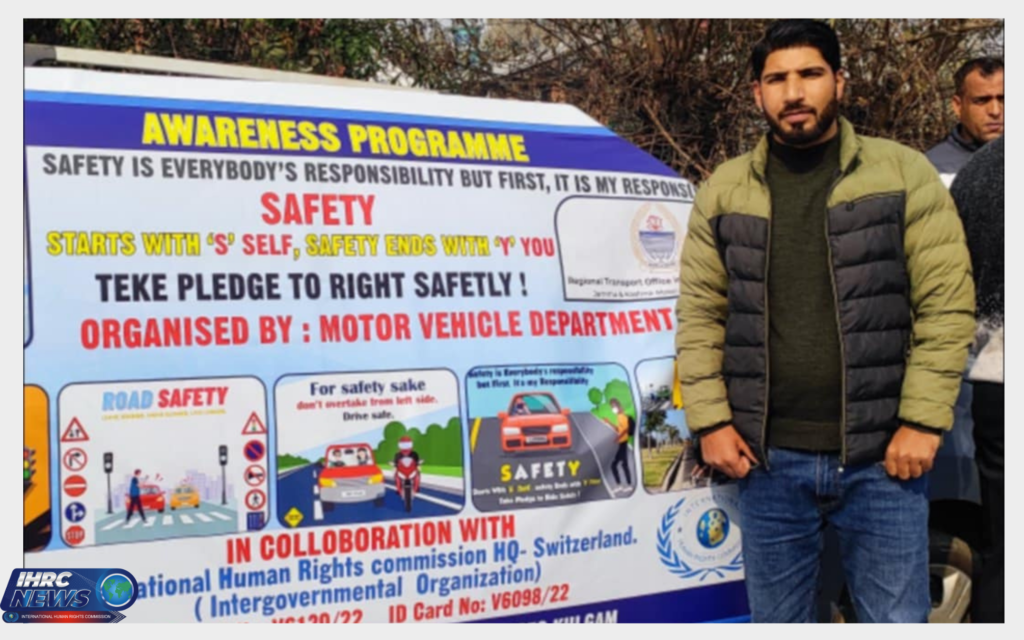
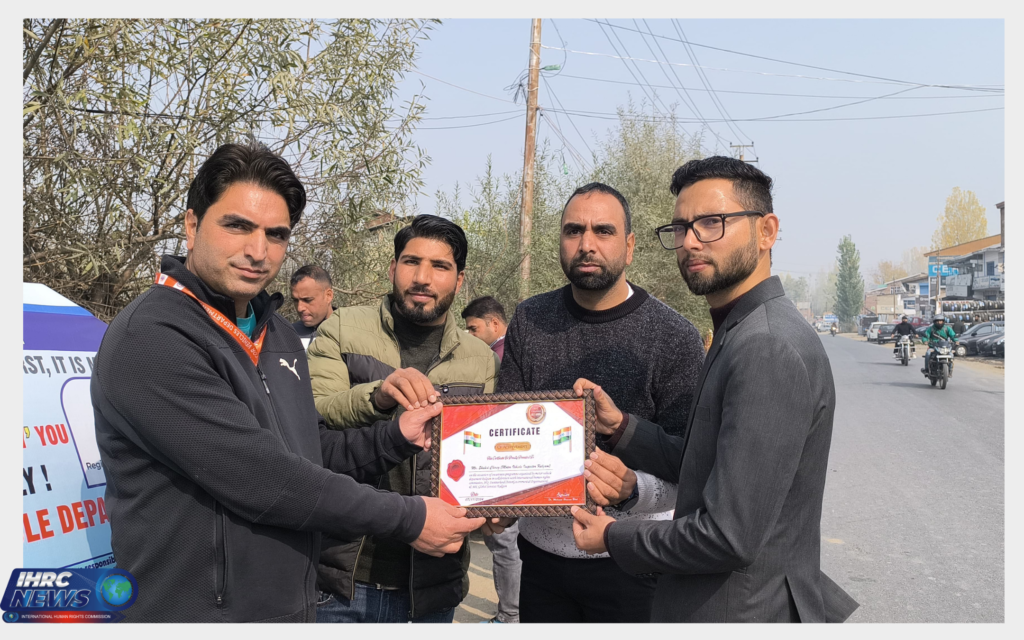
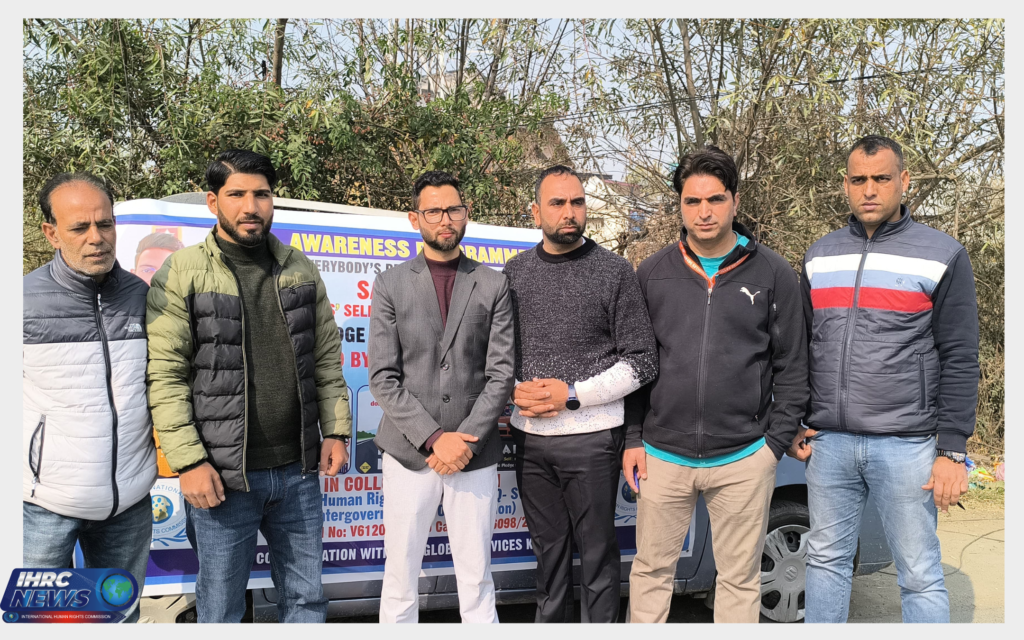
Reported:
Mohmad Husain Lone
IHRC Volunteer
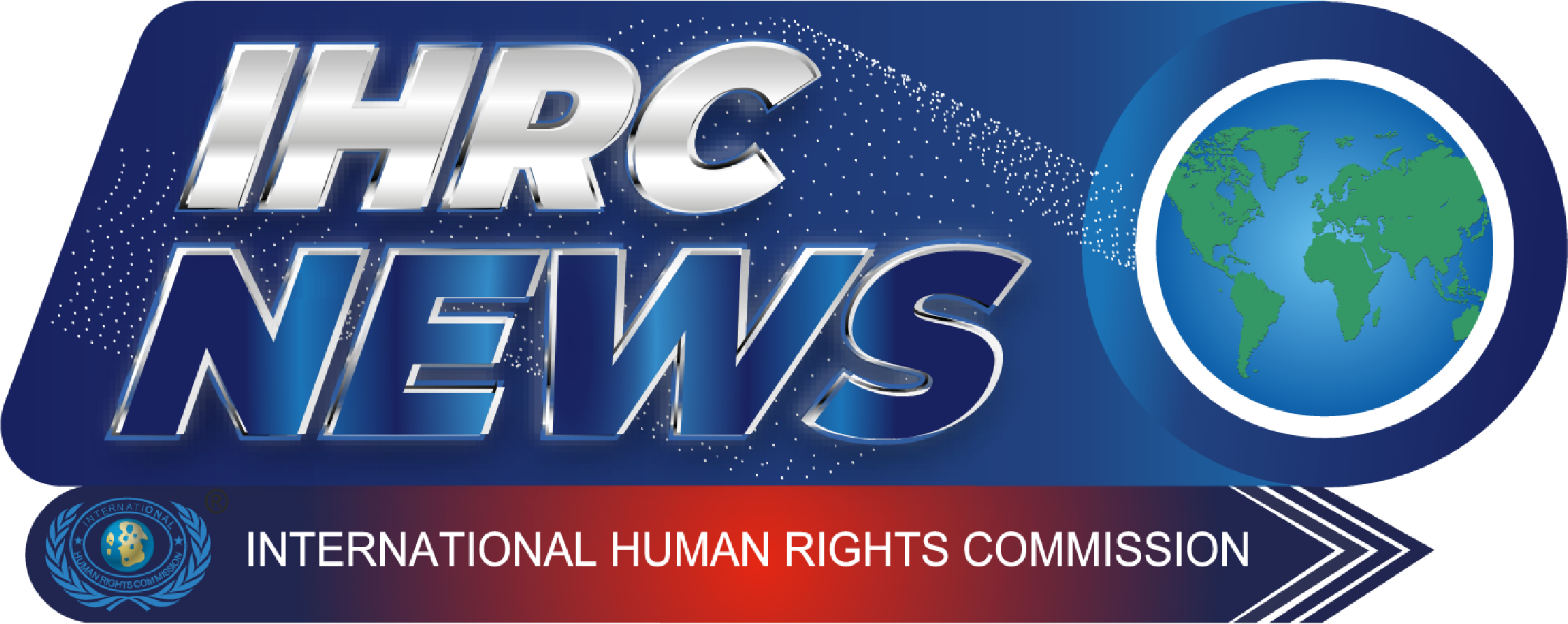



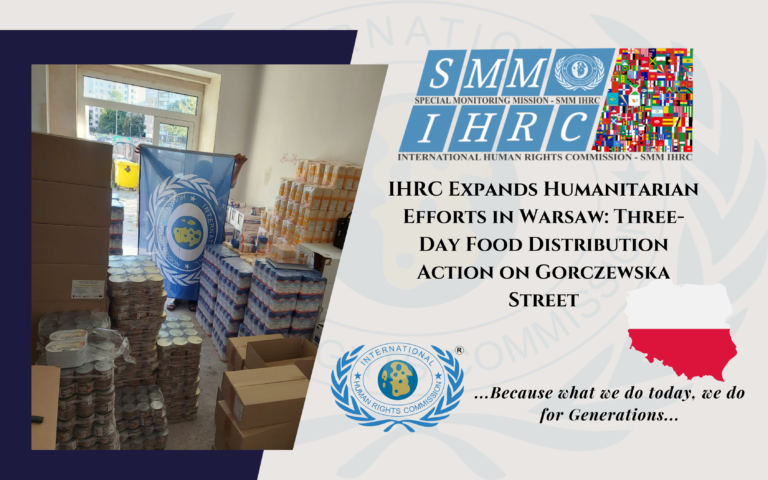

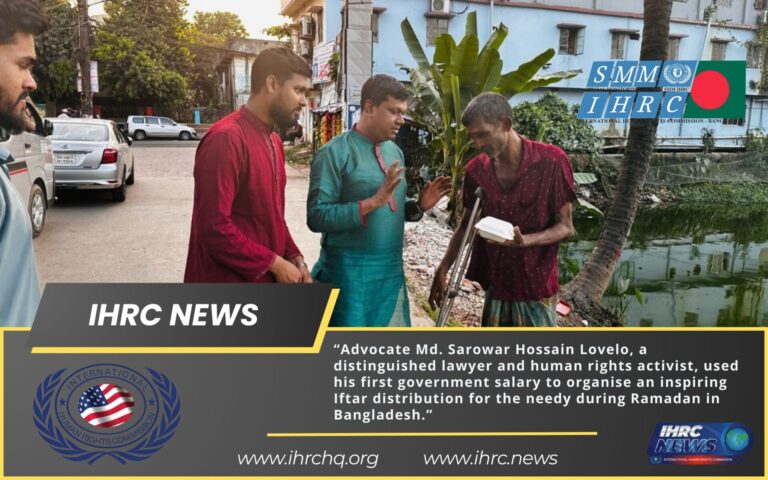
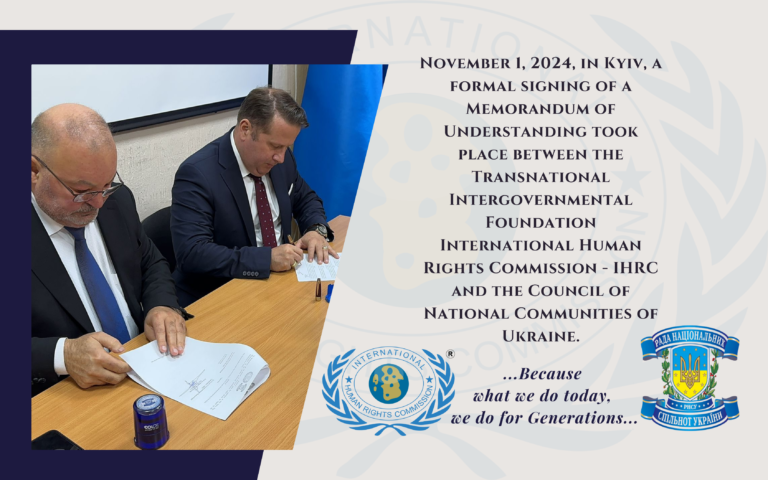
no
Together, we can create a world where every individual’s rights are valued and respected
Following the road safety rules alongside safety in daily life helps us stay safe. Other road safety rules are to obey all traffic signals like stop signs, red lights etc., wear seatbelts/helmets, maintain the speed limit and safe distance, don’t drink & drive, and also don’t drive without having a driving licence.
yes